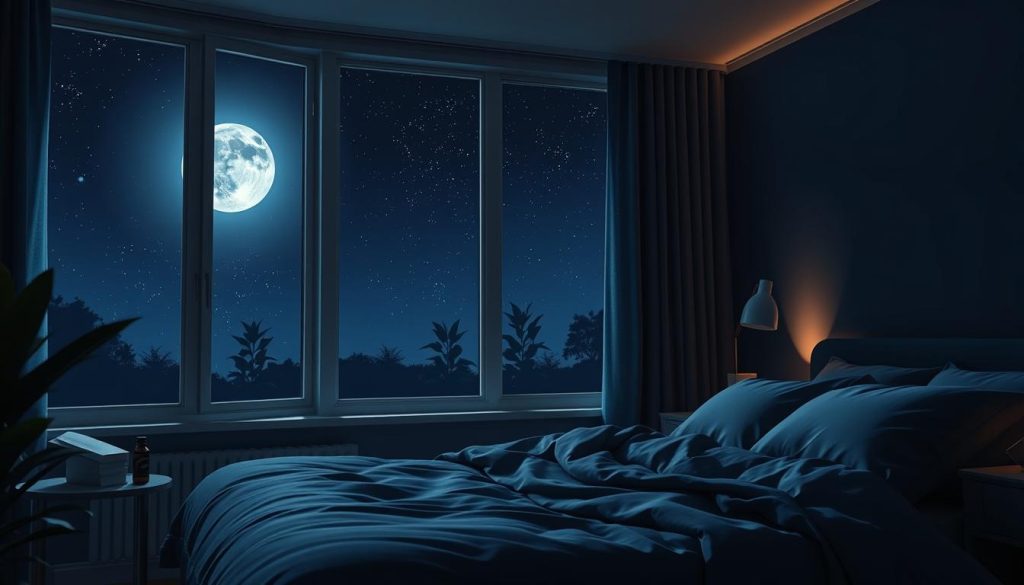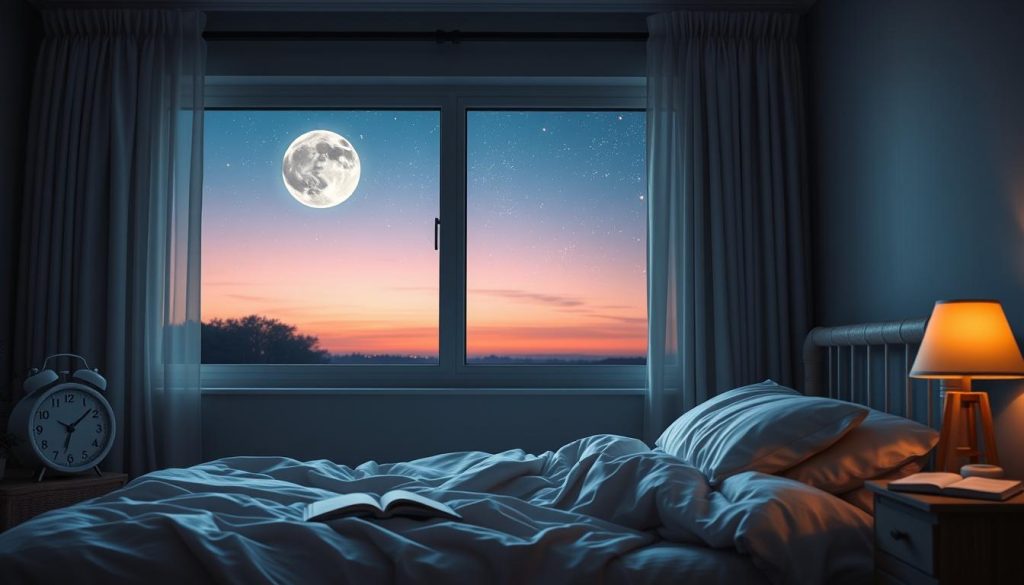Do you struggle with sleep or feel tired all day? The answer might be in boosting your melatonin. Melatonin is key for our sleep cycle. Keeping it healthy is vital for our well-being. This article will show you how to improve melatonin production naturally. You’ll sleep better and feel healthier.
Simple changes in our lives can help. Eating foods rich in melatonin and using supplements can naturally boost our melatonin production. We’ll look at how to increase melatonin naturally. This way, we can feel more rested and full of energy.
Ready to unlock your body’s melatonin power? We’ll share melatonin production tips to improve your sleep and health. No more artificial melatonin supplement alternatives. Let’s go for natural ways to boost your melatonin.
Understanding the Importance of Melatonin
Melatonin is a hormone that is key to our health and happiness. It’s important to know what it is and why it’s crucial.
What Is Melatonin and Why It Matters
Melatonin is made by the pineal gland in our brain. It helps us sleep and wake up at the right times. Having the right amount of melatonin is important for our health.
The Role of Melatonin in Sleep and Overall Health
Melatonin does more than just help us sleep. It also protects our cells from harm and boosts our immune system. This helps us fight off sicknesses.
It also helps us feel better and think clearer. When we have enough melatonin, we can feel happier and more focused. This shows how important melatonin is for our well-being.

Knowing how important melatonin is, we can take steps to help it work better. Next, we’ll look at ways to increase melatonin and improve our sleep.
Exposing Yourself to Natural Light During the Day
Getting outside during the day is a great way to boost your melatonin. Sunlight helps your body’s internal clock, or circadian rhythm. This rhythm is key to making melatonin. By spending time outside or near windows, you keep your sleep-wake cycle healthy.
Daylight is important for good melatonin levels. Bright light tells your brain to make less melatonin, helping you stay awake. As it gets darker, your brain makes more melatonin, getting you ready for sleep.
- Spend time outdoors during the day, even if it’s just a short walk or sitting near a window.
- Open blinds and curtains to allow natural light to filter into your living and work spaces.
- Consider using light therapy lamps or other devices that mimic natural sunlight if you’re unable to get outside.
- Avoid prolonged exposure to blue light from digital screens, which can disrupt melatonin production.
By getting more natural light, you help your body make melatonin. This simple step can greatly improve your health and happiness.

Establishing a Consistent Sleep-Wake Cycle
Keeping a regular sleep schedule is key for healthy melatonin levels. Going to bed and waking up at the same time each day helps our body’s clock work better. This leads to better sleep and more melatonin.
The Benefits of a Regular Bedtime Routine
A regular bedtime routine boosts melatonin and helps us sleep faster. Here are some tips for better sleep:
- Do relaxing things before bed, like reading or taking a warm bath.
- Don’t use phones, tablets, or computers for at least an hour before bed.
- Make your bedroom cool, dark, and quiet for the best sleep.
- Don’t eat big meals, drink caffeine, or alcohol close to bedtime.
By sticking to a regular sleep schedule and bedtime routine, we support our melatonin. This leads to better sleep and overall health.

| Benefit | Description |
|---|---|
| Improved Melatonin Production | A consistent sleep-wake cycle helps regulate the body’s internal clock, leading to better melatonin levels and more restful sleep. |
| Better Sleep Quality | Maintaining a regular bedtime routine and sleep-wake cycle can improve the quality and duration of our sleep, leaving us feeling more rested and energized. |
| Enhanced Overall Health | Consistent and quality sleep is essential for overall physical and mental well-being, supporting immune function, cognitive performance, and mood regulation. |
Embracing the Darkness at Night
Exposing ourselves to natural light during the day is key. It helps our bodies make melatonin, which is important for sleep. But, artificial light, like the blue light from screens, can mess with our sleep patterns.
Creating a Sleep-Friendly Environment
To help our bodies make melatonin better, we need to keep our bedrooms dark and quiet. Using blackout curtains and turning off screens can make a big difference. Keeping the room cool also helps.
Darkness at night is good for our health. By making our bedrooms sleep-friendly, we help our bodies make melatonin. This leads to better sleep and overall health.

